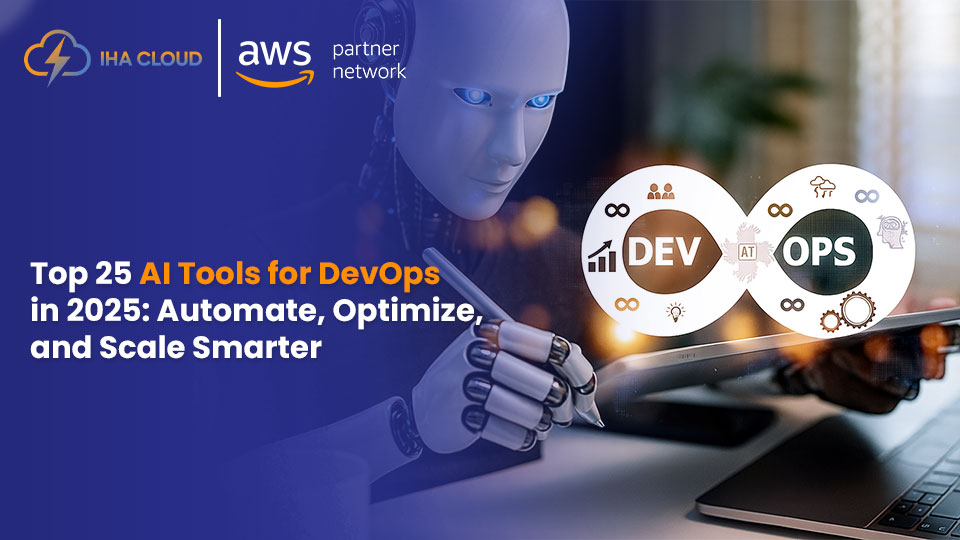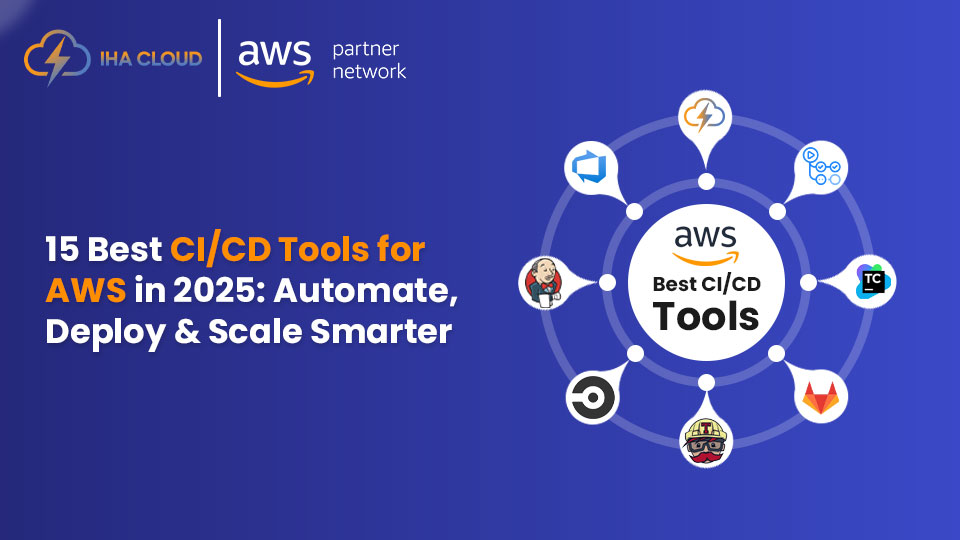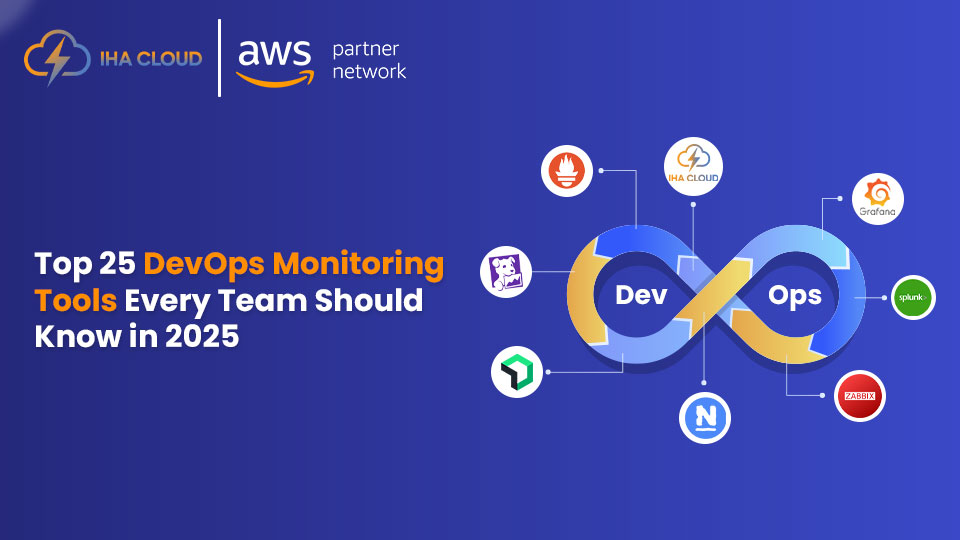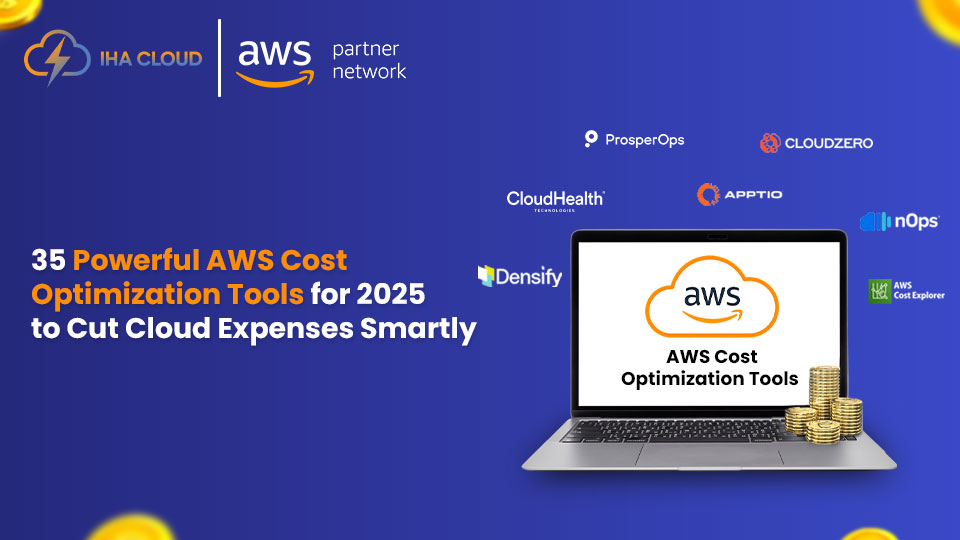In 2026, the world of DevOps is being transformed by artificial intelligence (AI). With faster deployments, complex cloud infrastructures, and continuous delivery pipelines, traditional automation is no longer enough. This is where AI tools for DevOps step in — enabling smarter automation, predictive analytics, and real-time insights that drive efficiency across the entire software lifecycle.
The best DevOps automation tools in 2026 are now powered by machine learning and data-driven intelligence. These AIOps platforms can automatically detect anomalies, prevent outages, optimize pipelines, and even write code or fix bugs before they impact production. Whether you’re managing Kubernetes clusters, automating builds, or monitoring large-scale applications, AI is helping DevOps teams stay ahead of challenges while improving reliability and performance.
In this detailed blog guide, we’ve compiled the Top 20 AI Tools for DevOps in 2026 — covering everything from CI/CD optimization and code generation to predictive monitoring and intelligent incident management. Each tool on this list represents how AI is shaping the future of DevOps through automation, intelligence, and collaboration.
What Are AI Tools for DevOps?
AI tools for DevOps are intelligent automation platforms that leverage artificial intelligence, data analytics, and machine learning to improve efficiency, performance, and reliability in DevOps workflows.
Unlike traditional automation tools that rely on fixed rules or manual configuration, AI-powered DevOps solutions learn continuously from data — identifying patterns, predicting incidents, and automatically resolving issues.
These tools can:
- Analyze large volumes of metrics, logs, and traces in real time.
- Detect and fix issues before they impact users.
- Automate repetitive tasks like code reviews, testing, and deployment.
- Suggest performance optimizations for pipelines, infrastructure, or applications.
In short, AI DevOps tools act as intelligent assistants that help teams move from reactive operations to proactive, self-healing environments.
Why AI Is Crucial for DevOps in 2026
As digital ecosystems expand, modern DevOps teams are managing hybrid infrastructures, multi-cloud setups, and containerized applications at massive scale. Manual monitoring and static automation simply can’t keep up.
Here’s why AI-driven DevOps automation is becoming essential:
- Proactive Problem Solving
AI allows systems to detect anomalies and fix issues automatically before they affect end users — reducing downtime and operational costs. - Smarter Resource Utilization
Machine learning models analyze system loads, helping optimize cloud costs, server capacity, and deployment frequency. - Faster CI/CD Pipelines
AI-powered automation accelerates integration and delivery by testing, verifying, and deploying code intelligently. - Enhanced Security
With AI-driven threat detection, DevOps teams can identify unusual behavior or vulnerabilities early in the software development lifecycle. - Reduced Human Error
AI eliminates guesswork and standardizes decision-making, ensuring greater consistency across builds, deployments, and monitoring.
In short, AI gives DevOps teams the intelligence and automation they need to handle complexity without sacrificing speed or reliability.
How AI Is Transforming the DevOps Lifecycle
The impact of AI can be seen across every stage of the DevOps pipeline — from development to deployment and monitoring.
1. Coding and Integration
AI helps developers write better, cleaner code by suggesting snippets, detecting bugs, and enforcing coding standards. It integrates seamlessly with repositories and CI tools to automate testing and build management.
2. Continuous Testing and Deployment
Machine learning algorithms predict deployment outcomes, identify risks, and automatically roll back failed releases. This ensures that production environments remain stable while enabling rapid iteration.
3. Monitoring and Incident Management
AI-powered observability platforms continuously analyze application performance, detect anomalies, and even predict failures before they occur. These systems can alert teams in real-time or trigger self-healing actions.
4. Security and Compliance
AI-based security systems scan for vulnerabilities, analyze user behavior, and monitor compliance in real-time, ensuring that every deployment is secure and regulation-ready.
5. Predictive Analytics and Optimization
AI-driven insights help teams identify long-term trends in resource usage, system reliability, and deployment frequency — enabling better decision-making and infrastructure planning.
The Role of AIOps Platforms in Modern DevOps
AIOps (Artificial Intelligence for IT Operations) is a subset of AI designed specifically to support IT and DevOps environments. These platforms process massive volumes of telemetry data — logs, events, and metrics — using advanced machine learning algorithms to deliver predictive and automated insights.
Key benefits of AIOps platforms include:
- Real-time anomaly detection and event correlation.
- Automated root cause analysis.
- Intelligent alert prioritization to reduce noise.
- Auto-remediation and incident response automation.
In 2026, AIOps is not a luxury — it’s a necessity for organizations that handle large-scale, distributed systems.
How to Implement AI in DevOps Workflows
Integrating AI into DevOps is a strategic shift rather than a simple tool upgrade. Here’s how teams can get started:
- Identify Data Sources:
Collect logs, metrics, and traces from all parts of your infrastructure. - Adopt AIOps Platforms:
Choose tools that can correlate and analyze this data using AI for actionable insights. - Automate Incrementally:
Start with small automation tasks — testing, alerting, or resource scaling — and expand gradually. - Integrate with CI/CD:
Ensure that your AI systems are part of the delivery pipeline for automated deployments and rollback decisions. - Monitor and Learn:
Continuously train your AI models to improve predictions and adapt to evolving system behavior.
Challenges in Adopting AI for DevOps
While the benefits are huge, there are still challenges:
- Data Quality: AI systems rely heavily on accurate, consistent data.
- Integration Complexity: Merging AI with existing DevOps tools requires careful planning.
- Skill Gaps: Teams may need to upskill in AI/ML concepts to use AIOps effectively.
- Cost and Scalability: AI platforms may require significant infrastructure investments.
However, these challenges are rapidly diminishing as modern AI DevOps tools become more user-friendly, cloud-native, and cost-efficient.
The Future of AI in DevOps
Looking ahead, the synergy between AI and DevOps will continue to evolve. Future DevOps automation tools will not only predict and fix problems but also design optimal architectures, generate infrastructure-as-code automatically, and even forecast business outcomes.
AI will play a central role in autonomous DevOps, where systems manage themselves — scaling resources, healing outages, and optimizing performance with minimal human input. This shift will allow teams to focus more on innovation and less on operational overhead.
Comparison Table: Top 20 AI Tools for DevOps in 2026
| AI Tool | Core AI Feature | Best Use Case | Deployment Type |
|---|---|---|---|
| GitHub Copilot | AI-powered code generation and suggestion | Automating repetitive coding tasks | Cloud / IDE Plugin |
| Jenkins X | ML-based pipeline automation | CI/CD workflow optimization | Cloud & Kubernetes |
| DataDog | AI anomaly detection & root cause analysis | Application & infrastructure monitoring | Cloud-based |
| Ansible Lightspeed | Natural language to automation code | Infrastructure automation | Hybrid / Cloud |
| Dynatrace | Davis AI for performance analytics | Full-stack observability | Cloud / SaaS |
| Splunk ITSI | Predictive analytics and service scoring | IT service intelligence | Cloud & On-premise |
| Harness.io | AI-driven deployment verification | Continuous delivery automation | Cloud / Hybrid |
| Moogsoft | Event correlation & noise reduction | Incident management | Cloud / On-premise |
| PagerDuty AIOps | ML-based event correlation | Intelligent alerting & response | Cloud / SaaS |
| New Relic AI | AI-based anomaly detection | Unified observability & analysis | Cloud / Hybrid |
| CloudBees | ML pipeline optimization | Enterprise CI/CD automation | Cloud & On-premise |
| AppDynamics Cognition Engine | AI-powered root cause analysis | Application performance monitoring | Cloud / Hybrid |
| Sumo Logic | Predictive log analytics | Real-time monitoring & insights | Cloud-native |
| Algorithmia | AI model deployment & scaling | MLOps management | Cloud / Hybrid |
| IBM Watson AIOps | NLP-based incident automation | IT operations optimization | Cloud / Enterprise |
| Prometheus + Cortex AI | AI anomaly detection in metrics | Infrastructure & cluster monitoring | Open-source / Cloud |
| GitLab Duo | AI code review & pipeline optimization | DevSecOps automation | Cloud / Self-hosted |
| DeepCode by Snyk | AI code scanning & vulnerability detection | Secure code analysis | Cloud / IDE Plugin |
| BMC Helix AIOps | Predictive intelligence & remediation | Enterprise AIOps management | Cloud / Hybrid |
| OpsMx Autopilot | AI-based deployment risk analysis | Continuous delivery intelligence | Cloud / On-premise |
Here is the detailed description about the 20 Best AI tools for DevOps in 2026
1. GitHub Copilot – Best AI tools For Devops
GitHub Copilot has revolutionized how developers write code, making it one of the most essential AI-powered tools for DevOps teams. Built on OpenAI’s Codex model, Copilot suggests entire lines or functions based on natural language prompts and previously written code.
Key Features:
- Real-time AI-assisted coding within IDEs like Visual Studio Code.
- Support for multiple programming languages.
- Learns from context to predict developer intent.
- Integrates seamlessly with CI/CD workflows.
Why It’s Great for DevOps:
Copilot reduces manual coding effort, enhances productivity, and minimizes syntax or logic errors, enabling DevOps engineers to focus more on automation and deployment tasks rather than repetitive coding.
2. Jenkins X
Jenkins X is an advanced CI/CD automation platform that extends Jenkins with Kubernetes and AI-powered workflow automation. It uses machine learning to optimize build pipelines, identify failure patterns, and automatically adjust configurations for better performance.
Key Features:
- Automated pipeline creation for Kubernetes and cloud-native apps.
- Built-in GitOps workflow for version control.
- AI-based build optimization and failure prediction.
- Seamless integration with GitHub, Bitbucket, and GitLab.
Why It’s Great for DevOps:
Jenkins X eliminates guesswork from continuous delivery. Its AI layer can automatically roll back failed deployments, suggest pipeline improvements, and even recommend optimal build resources — making it a smart choice for modern DevOps automation.
3. DataDog
DataDog is a cloud-based monitoring and security platform that uses AI to provide end-to-end observability for DevOps teams. It tracks infrastructure metrics, logs, and application traces to detect anomalies and predict potential downtime before it occurs.
Key Features:
- AI-driven anomaly detection and root cause analysis.
- Unified dashboard for metrics, logs, and traces.
- Integration with Kubernetes, AWS, Azure, and GCP.
- Automatic alerting through machine learning.
Why It’s Great for DevOps:
DataDog helps teams detect and resolve performance issues proactively. With its AI algorithms, it identifies unusual trends in deployment environments and provides actionable insights to prevent outages and maintain uptime.
4. Ansible Lightspeed
Ansible Lightspeed by Red Hat integrates AI into infrastructure automation. It assists in creating Ansible playbooks faster using natural language, powered by IBM Watson Code Assistant.
Key Features:
- AI-generated YAML code suggestions for automation tasks.
- Context-aware recommendations based on best practices.
- Integrated documentation and code correction.
- Works with Red Hat OpenShift and other CI/CD platforms.
Why It’s Great for DevOps:
By automating repetitive infrastructure tasks, Ansible Lightspeed reduces human errors and accelerates deployment cycles. It’s particularly useful for teams that manage hybrid or multi-cloud environments and want to streamline automation setup.
You can also read: 15 Best CI/CD Tools for AWS in 2026
5. Dynatrace
Dynatrace is one of the most comprehensive AI-driven observability platforms used in DevOps for automatic monitoring, alerting, and root cause analysis. Its Davis AI engine continuously analyzes billions of dependencies in real-time to detect performance bottlenecks and optimize application delivery.
Key Features:
- AI-powered observability for full-stack environments.
- Real-time anomaly detection and automated root cause analysis.
- Smart baselining to reduce false alerts.
- Cloud-native integrations with AWS, Azure, and Kubernetes.
Why It’s Great for DevOps:
Dynatrace reduces the complexity of monitoring large-scale systems. Its AI can pinpoint the exact source of issues—whether it’s code, infrastructure, or network—allowing DevOps teams to resolve problems before they affect users.
6. Splunk IT Service Intelligence (ITSI)
Splunk ITSI combines data analytics and AI to help DevOps teams gain complete visibility into IT services and infrastructure. It applies predictive analytics to forecast potential system failures and performance degradation.
Key Features:
- Predictive analytics powered by machine learning.
- Service health scoring with real-time dashboards.
- Event correlation and automatic anomaly detection.
- Integration with third-party tools like PagerDuty and ServiceNow.
Why It’s Great for DevOps:
Splunk ITSI allows DevOps teams to be proactive instead of reactive. Its AI-driven monitoring capabilities predict incidents before they occur, minimizing downtime and improving overall service reliability.
7. Harness.io
Harness.io is a Continuous Delivery (CD) platform enhanced by AI that simplifies deployment, rollback, and pipeline automation. It uses machine learning to detect failed deployments, assess success metrics, and automatically roll back when anomalies occur.
Key Features:
- AI-based deployment verification and rollback.
- Continuous integration and delivery with GitOps support.
- Cost optimization for cloud infrastructure.
- Built-in security and compliance checks.
Why It’s Great for DevOps:
Harness automates the end-to-end delivery process using AI. By automatically validating deployment performance and optimizing resource usage, it ensures faster delivery cycles with fewer errors.
8. Moogsoft
Moogsoft is an AIOps platform that leverages artificial intelligence to manage IT incidents and automate event correlation. It consolidates alerts, eliminates noise, and provides contextual insights to help DevOps teams respond quickly.
Key Features:
- AI-driven incident detection and correlation.
- Noise reduction through event clustering.
- Real-time anomaly detection and predictive insights.
- Integration with existing monitoring tools and chat platforms.
Why It’s Great for DevOps:
Moogsoft helps teams manage complex IT operations efficiently. By using AI to group related incidents, it reduces alert fatigue and improves response times, making it an essential tool for teams managing large-scale cloud and microservices environments.
You can also read: Top 25 DevOps Monitoring Tools for 2026
9. PagerDuty AIOps
PagerDuty AIOps combines machine learning and automation to empower DevOps teams with intelligent incident response and digital operations management. It proactively identifies issues before they escalate, automates workflows, and helps reduce Mean Time to Resolution (MTTR).
Key Features:
- Machine learning–driven event correlation and noise reduction.
- Intelligent alerting with contextual recommendations.
- Integration with hundreds of monitoring and observability tools.
- Real-time collaboration and response automation.
Why It’s Great for DevOps:
PagerDuty AIOps minimizes alert fatigue and automatically prioritizes incidents that truly need attention. Its AI algorithms analyze historical incident data to predict potential outages and suggest preventive measures, making it a must-have for high-availability systems.
10. New Relic AI
New Relic AI integrates observability with artificial intelligence to deliver actionable insights for DevOps teams. It correlates logs, metrics, and traces across distributed systems, automatically detecting anomalies and providing real-time recommendations.
Key Features:
- AI-powered anomaly detection and incident grouping.
- Unified telemetry data visualization.
- Predictive performance insights.
- Automated alerts with context-aware intelligence.
Why It’s Great for DevOps:
New Relic AI enables faster root cause analysis by reducing noise and offering data-driven insights. For DevOps engineers handling large-scale microservices or containerized apps, it simplifies monitoring and helps maintain consistent performance.
11. CloudBees
CloudBees is an enterprise-level CI/CD and software delivery platform that uses AI to optimize build pipelines and detect inefficiencies. It enables continuous integration, continuous delivery, and release orchestration with intelligent automation.
Key Features:
- Smart pipeline optimization through machine learning.
- Release management with compliance tracking.
- Integration with Jenkins, Git, and Kubernetes.
- Predictive analytics for performance monitoring.
Why It’s Great for DevOps:
CloudBees empowers DevOps teams to accelerate software delivery with confidence. Its AI-driven insights into build failures, bottlenecks, and code quality ensure more reliable deployments and reduced release times.
12. AppDynamics Cognition Engine
AppDynamics Cognition Engine is an AI-powered performance monitoring tool that automatically detects anomalies and performance degradations in real-time. Designed for complex enterprise environments, it helps DevOps teams identify root causes instantly.
Key Features:
- AI-based anomaly detection and root cause analysis.
- Full-stack visibility across applications and infrastructure.
- Automated baselining using historical data.
- Integration with CI/CD tools and cloud platforms.
Why It’s Great for DevOps:
AppDynamics Cognition Engine eliminates the manual effort in performance monitoring. By continuously learning from application behavior, it delivers precise insights that help DevOps teams maintain performance and stability across all environments.
13. Sumo Logic
Sumo Logic is a cloud-native, AI-powered analytics and observability platform that helps DevOps teams analyze logs, monitor performance, and secure infrastructure. Its machine learning models automatically detect anomalies and provide predictive insights to ensure application reliability.
Key Features:
- AI-driven log analytics and real-time monitoring.
- Predictive alerts and anomaly detection.
- Built-in dashboards for CI/CD pipelines and Kubernetes.
- Integration with AWS, Azure, and GCP.
Why It’s Great for DevOps:
Sumo Logic simplifies troubleshooting by converting raw logs into meaningful intelligence. Its AI layer identifies unusual behaviors and helps prevent production issues, making it an indispensable tool for maintaining high uptime and performance.
14. Algorithmia
Algorithmia is an AI and MLOps platform that allows DevOps teams to manage, deploy, and scale machine learning models efficiently. It automates the operational side of AI—such as version control, model deployment, and monitoring—ensuring smoother integration of AI into DevOps pipelines.
Key Features:
- Model versioning and deployment automation.
- Scalable microservice-based architecture.
- Integration with CI/CD tools like Jenkins and GitHub Actions.
- Performance monitoring and security controls.
Why It’s Great for DevOps:
Algorithmia bridges the gap between AI and DevOps. It simplifies MLOps management, reduces deployment risks, and ensures that machine learning models are securely and reliably integrated into production environments.
15. IBM Watson AIOps
IBM Watson AIOps uses powerful AI models to transform IT operations and DevOps workflows. It analyzes large volumes of telemetry data to identify hidden patterns, automatically resolve incidents, and recommend actions for continuous optimization.
Key Features:
- Natural language processing and advanced ML insights.
- Real-time incident prediction and root cause analysis.
- Integration with monitoring tools, CI/CD pipelines, and ITSM systems.
- Automated workflow remediation.
Why It’s Great for DevOps:
Watson AIOps helps DevOps teams work smarter by reducing noise, correlating data from multiple sources, and automating repetitive troubleshooting tasks. It’s ideal for organizations seeking operational efficiency across complex IT ecosystems.
16. Prometheus with Cortex AI
Prometheus is an open-source monitoring solution that, when combined with Cortex AI, becomes a powerful predictive analytics and observability system. This integration enables DevOps teams to use AI-driven insights for better metric analysis and capacity planning.
Key Features:
- AI-based anomaly detection and trend prediction.
- Scalable time-series monitoring with Cortex integration.
- Easy setup with Kubernetes and Grafana dashboards.
- Alerting system enhanced with machine learning.
Why It’s Great for DevOps:
Prometheus with Cortex AI takes infrastructure monitoring to the next level. It allows teams to predict resource spikes, anticipate failures, and optimize workloads using AI insights—helping achieve maximum reliability and cost efficiency.
17. GitLab Duo
GitLab Duo brings AI capabilities directly into the GitLab DevSecOps platform, enhancing code reviews, security checks, and deployment workflows. It uses machine learning to suggest improvements, detect potential vulnerabilities, and automate testing processes.
Key Features:
- AI-assisted code review and auto-suggestions.
- Intelligent CI/CD optimization and pipeline generation.
- Security vulnerability scanning with real-time insights.
- Seamless integration with Git repositories and container platforms.
Why It’s Great for DevOps:
GitLab Duo streamlines every phase of the DevOps lifecycle. From writing code to deploying it, AI ensures smarter collaboration, faster delivery, and fewer errors — making it a comprehensive solution for teams that prioritize speed and quality.
18. DeepCode by Snyk
DeepCode (now part of Snyk) uses advanced AI and deep learning algorithms to analyze codebases in real-time and detect potential issues. It’s like having a smart assistant that continuously improves code quality and security in CI/CD pipelines.
Key Features:
- AI-based static code analysis with deep learning.
- Detection of security vulnerabilities and code smells.
- Continuous scanning for open-source dependencies.
- Integration with GitHub, GitLab, Bitbucket, and IDEs.
Why It’s Great for DevOps:
DeepCode helps DevOps engineers maintain clean, secure, and efficient code. By catching vulnerabilities before deployment, it minimizes risks and accelerates software delivery — all while ensuring compliance and code consistency.
19. AIOps by BMC (Helix Platform)
BMC Helix AIOps delivers a unified AI-powered platform for operations management. It leverages predictive intelligence, anomaly detection, and automated remediation to maintain IT performance and reliability.
Key Features:
- Predictive analytics for early incident detection.
- Automated problem resolution using AI-based insights.
- Unified visibility across cloud, hybrid, and on-premise systems.
- Integration with major DevOps and ITSM tools.
Why It’s Great for DevOps:
BMC Helix AIOps empowers DevOps teams to act on predictive insights rather than react to failures. It improves system uptime, automates root cause analysis, and accelerates remediation, making it essential for large-scale enterprise environments.
20. OpsMx Autopilot
OpsMx Autopilot is an AI-driven continuous delivery intelligence platform that works with tools like Spinnaker and Jenkins. It provides real-time visibility into deployments, automates risk assessments, and helps DevOps teams deploy software confidently.
Key Features:
- AI-based deployment verification and canary analysis.
- Continuous risk scoring and anomaly detection.
- Integration with CI/CD pipelines for automated rollbacks.
- Detailed audit trails and compliance tracking.
Why It’s Great for DevOps:
OpsMx Autopilot enhances release confidence by using AI to analyze deployment data in real time. It minimizes the risk of bad releases and ensures smooth, automated rollouts — a perfect fit for teams practicing continuous delivery.
In 2026, the world of DevOps is being transformed by artificial intelligence (AI). With faster deployments, complex cloud infrastructures, and continuous delivery pipelines, traditional automation is no longer enough. This is where AI tools for DevOps step in — enabling smarter automation, predictive analytics, and real-time insights that drive efficiency across the entire software lifecycle.
The best DevOps automation tools in 2026 are now powered by machine learning and data-driven intelligence. These AIOps platforms can automatically detect anomalies, prevent outages, optimize pipelines, and even write code or fix bugs before they impact production. Whether you’re managing Kubernetes clusters, automating builds, or monitoring large-scale applications, AI is helping DevOps teams stay ahead of challenges while improving reliability and performance.
In this detailed guide, we’ve compiled the Top 20 AI Tools for DevOps in 2026 — covering everything from CI/CD optimization and code generation to predictive monitoring and intelligent incident management. Each tool on this list represents how AI is shaping the future of DevOps through automation, intelligence, and collaboration.
Conclusion:
The integration of AI and DevOps is no longer a futuristic concept — it’s the new standard for digital operations. These top 20 AI tools for DevOps in 2026 are redefining how teams build, deploy, and monitor software by bringing intelligence into every stage of the development pipeline.
From GitHub Copilot’s AI-assisted coding to Dynatrace’s predictive monitoring and IBM Watson AIOps’ automated remediation, these platforms are accelerating innovation and improving software reliability like never before. The growing adoption of AIOps platforms reflects a clear trend: DevOps teams are shifting from manual workflows to autonomous, data-driven operations.
If your goal is faster delivery, reduced downtime, and smarter resource utilization, adopting one or more of these best DevOps automation tools will give you a competitive edge in 2026 and beyond. AI-powered DevOps is not just a technological shift — it’s a strategic advantage for every modern enterprise aiming to achieve scalability, agility, and performance excellence.
Frequently Asked Questions
AI tools for DevOps use artificial intelligence and machine learning to automate CI/CD pipelines, predict system failures, and improve deployment efficiency.
They enable faster, smarter, and more reliable operations by using predictive analytics, anomaly detection, and intelligent automation across workflows.
DevOps focuses on collaboration between development and operations, while AIOps adds artificial intelligence to automate and optimize IT operations.
Some of the best include GitHub Copilot, Dynatrace, DataDog, Harness, IBM Watson AIOps, and CloudBees for smart automation and predictive monitoring.
They enhance CI/CD by automatically testing, verifying, and deploying code, reducing human intervention, and improving deployment success rates.




